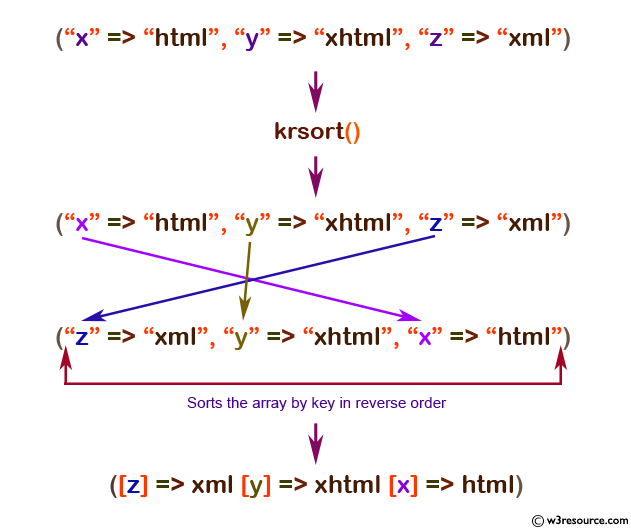PHP: krsort() function
PHP: Sort an array by key in reverse order
The krsort() function is used to sort an array by key in reverse order. Sorts an array by key in reverse order, maintaining a key to data correlations. The function is useful mainly for associative arrays.
Version:
(PHP 4 and above)
Syntax:
krsort(array_name, sort_type)
Parameters:
| Name | Description | Required / Optional |
Type |
|---|---|---|---|
| array_name | The argument to process in radians. | Required | Array |
| sort_type | Sets the sorting behavior. Possible Sorting type flags. SORT_REGULAR - Compare items normally. SORT_NUMERIC - Compare items numerically. SORT_STRING - Compare items as strings. SORT_LOCALE_STRING - compare items as strings, based on the current locale |
Optional | Integer |
Return value:
TRUE on success or FALSE on failure.
Value Type: Boolean.
Example:
<?php
$w3r_array = array("x" => "html", "y" => "xhtml", "z" => "xml");
krsort($w3r_array);
print_r($w3r_array);
?>
Output:
Array ([z] => xml [y] => xhtml [x] => html)
Pictorial Presentation:

View the example in the browser
Practice here online:
See also
